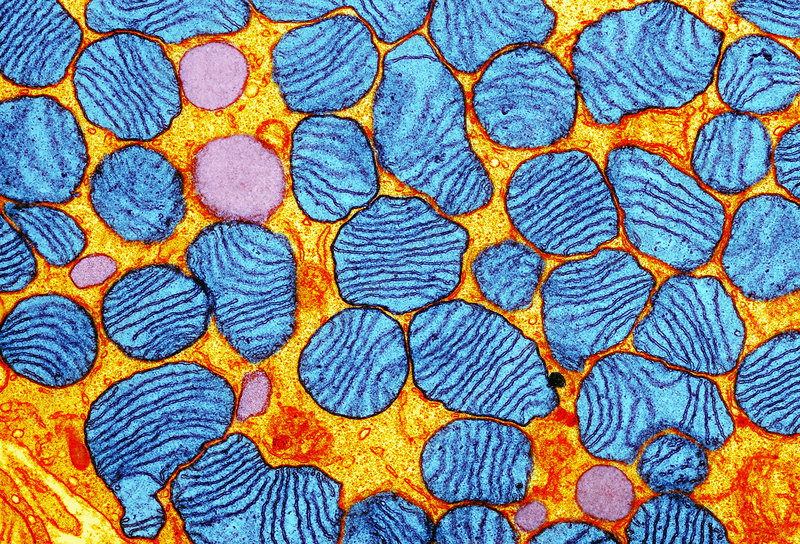Mitochondria, the engines of energy production and cellular, are essential for the normal functioning of our body, as they produce ATP, the primary energy currency of the cell. But when they are damaged or dysfunctional, it can lead to a range of health problems.
The Science
According to a study published in the journal Frontiers in Bioscience, mitochondrial dysfunction has been linked to a wide range of chronic diseases, including neurodegenerative disorders, metabolic disorders, cardiovascular diseases, and cancer [1].
Another study published in the journal Redox Biology showed that mitochondrial dysfunction is a key factor in the development and progression of many diseases, including type 2 diabetes, heart disease, and Alzheimer’s disease. The researchers also found that targeting mitochondrial dysfunction with specific interventions, such as exercise and dietary changes, can help prevent and treat these conditions [2].
So, what can you and I do to protect and improve the health of our mitochondria? One way is through a process called mitochondrial biogenesis, which is the growth and replication of new mitochondria within our cells. This process can be stimulated through various lifestyle interventions, including regular exercise, intermittent fasting, and caloric restriction. A review published in the journal Nutrients found that these interventions can help improve mitochondrial function and reduce the risk of chronic disease [3].
In addition to lifestyle interventions, there are also certain nutrients and supplements that can support mitochondrial health. For example, fulvic and humic acids, the foundation of all the work I do now, have been shown to potentially support mitochondrial health and function by stimulating respiration. One study found that humic acid increased the activity of mitochondrial enzymes in rat heart tissue [6]. Another study showed that fulvic acid supplementation improved mitochondrial function and reduced oxidative stress in aged rats [7].
Another nutrient that has been shown to support mitochondrial health is alpha-lipoic acid (ALA), which is a potent antioxidant that can improve mitochondrial function and reduce inflammation in the body. A study published in the journal Free Radical Research found that ALA supplementation can improve mitochondrial function and reduce oxidative stress in people with metabolic disorders [5].
To Conclude
Medical literature shows that mitochondrial dysfunction is a major contributor to the rise in chronic illness, and that protecting and improving the health of our mitochondria should be a key focus of our health and wellness efforts. Through lifestyle interventions and targeted supplementation, we can support mitochondrial biogenesis, improve mitochondrial function, and reduce the risk of chronic disease. Based on research and my personal and clinical experience, I believe that humic and fulvic acids are integral tools for healing to occur.
I hope you find this post informative and helpful. If you’d like to talk about your health goals and my coaching programs, contact me here.
There are several PubMed articles that support what I share, that mitochondrial dysfunction can be a root cause of chronic illness. Here are a few examples:
- “Mitochondrial dysfunction and chronic disease: treatment with natural supplements” – https://pubmed.ncbi.nlm.nih.gov/27499020/
- “Mitochondrial Dysfunction in Chronic Kidney Disease” – https://pubmed.ncbi.nlm.nih.gov/30710783/
- “Mitochondrial Dysfunction in Parkinson’s Disease” – https://pubmed.ncbi.nlm.nih.gov/28486029/
- “Mitochondrial Dysfunction in Alzheimer’s Disease and the Rationale for Bioenergetics-Based Therapies” – https://pubmed.ncbi.nlm.nih.gov/27017945/
- “Mitochondrial Dysfunction in Obesity and Diabetes” – https://pubmed.ncbi.nlm.nih.gov/27136563/
- “Humic acid promotes mitochondrial biogenesis and increases exercise endurance in rats.” – https://pubmed.ncbi.nlm.nih.gov/28964891/
- “Protective effects of fulvic acid against oxidative stress in a rat model of aging.” – https://pubmed.ncbi.nlm.nih.gov/34422324/
I hope you find this post and resources helpful. If you’d like to discuss your health goals and my coaching programs, feel free to reach out to me here.






